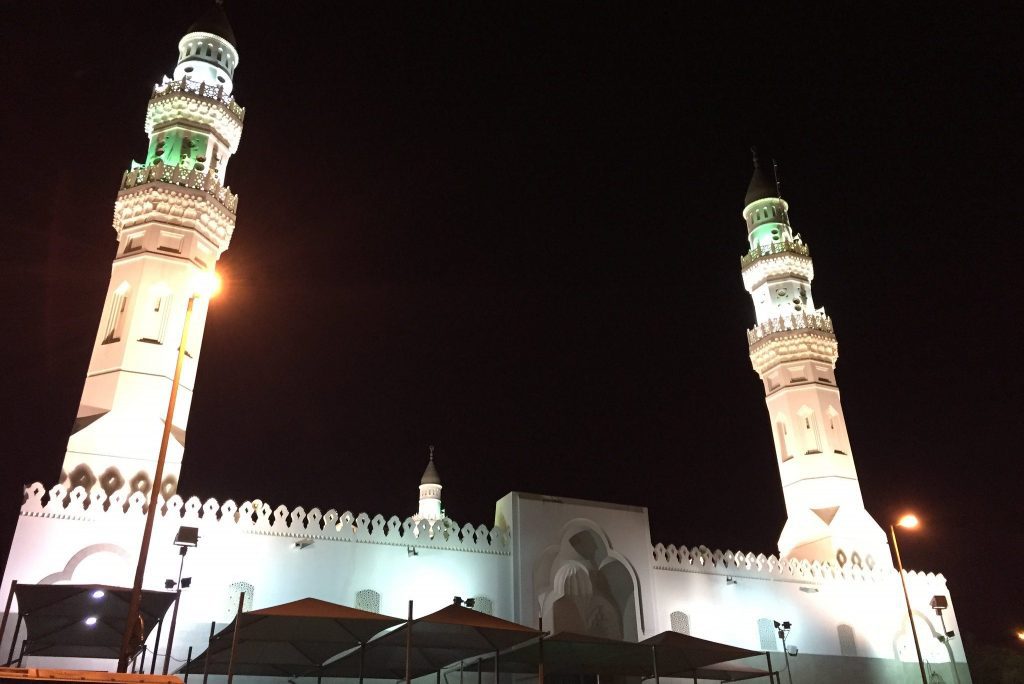WebBeds, Agoda Rush to Serve New Generation of Muslim Pilgrims to Saudi

Skift Take
Major Asian players WebBeds and Agoda are making swift moves to disrupt Umrah pilgrimage travel bookings as Saudi Arabia unveils a vision to support millions more Muslim travelers to the kingdom.
For one, WebBeds has formed UmrahHolidays International in a joint venture with undisclosed partners in the Middle East. The bedbanks, part of Australian-listed company Webjet, has also announced UmrahHolidays’ two exclusive partnerships in China, with Mafengwo for direct online consumer sales and major wholesaler Haoqiao for retail agency distribution.
Umrah refers to pilgrims visiting the two most sacred Muslim cities in the world, Mecca and Medina in Saudi Arabia, at any time of the year except during the compulsory Hajj.
Agoda last December signed a Memorandum of Understanding with Saudi Arabia’s Ministry of Hajj and Umrah “to explore ways to use technology to manage the anticipated increase in guests to the kingdom and make accommodation reservations more accessible, easier, faster and secure,” its statement said.
Agoda has also launched a dedicated multilingual and multicurrency Umrah site that has been certified by the ministry.
Another online travel agency, Dubai-based Holidayme, which raised $16 million in funding last November led by Malaysia’s Gobi Partners, has launched Umrahme, which targets global visitors from 15 to 20 countries, particularly in Asia, to book Umrah tailored packages completely online, including visa processing.
Why Saudi Arabia
Players are turning their focus to Saudi Arabia for very good reasons. On the one hand, the kingdom has announced plans to increase the capacity and quality of services to support its target of more than 15 million Umrah visitors a year by 2020, and 30 million by 2030, from eight million in 2015.
It says it will achieve this by automating visa application procedures, upgrading accommodation, improving hospitality and launching new services and attractions for pilgrims.
For instance, an Islamic museum of the highest global standards will be built in Medina, where the first Islamic society was born, it says. A third expansion to the two holy mosques in Mecca and Medina has begun. Airports are being modernized and their capacities expanded. A Makkah Metro project has been launched to complement rail and train projects that will serve visitors to the holy mosques and other holy sites.
The kingdom also aims to more than double the number of Saudi heritage sites registered with UNESCO by 2030.
On the other hand, the Umrah market is totally underserved. In Asia in general, it is still largely group travel handled by travel agencies which have not caught up with technology and could get away with sub-standard services because their last generation clients aren’t used to having choices.
But a new generation of tech-savvy Muslim travelers with the means to do Umrah on a free independent basis and include a pre- or post-trip covering Mecca, Medina, and Jeddah, is sprouting. Hence, the gold rush to “modernize” Umrah bookings.
Huge Market to Serve
Asia, with huge Muslim populations in countries such as Indonesia, Malaysia and China, is everybody’s Umrah target market. China alone has more than 30 million Muslims, according to WebBeds.
“We’re working on many markets but we’re excited about China,” Daryl Lee, WebBeds Asia-Pacific CEO based in Singapore, told Skift. “Everyone markets Thailand to Chinese outbound travelers, but there’s a huge Umrah travel market which people have neglected. We want to provide unique products and create new demand wherever possible, not grab existing market share.”
Through its UmrahHolidays, WebBeds offers retail agents online instant visa processing for their clients, Umrah packages, standalone accommodation in more than 600 hotels in Mecca, Medina and Jeddah, sightseeing options, meet and greet transfers and 24/7 customer service contact, enabling agents to customize bookings for clients with ease and competitive prices.
Lee would not share WebBeds’ sales targets from its partnership with Mafengwo and Haoqiao, saying the focus is to ensure that the business progresses strategically. It’s also why WebBeds decided to go in with two exclusive partners, rather than with everyone.
“The awareness and domain knowledge of religious travel is relatively low in China, so rather than appoint everyone, we work with few players but those who are willing to invest with us in building the market. Haoqiao needs to train the retail agents on product information, for example. Mafengwo must build up direct content and traveler reviews.
“There’s a lot to impart to consumers, even simple things like the geography of the destination, the climate, things to look out for, since 99 percent of them have not been there,” said Lee.
Added Yu ZhangTao, CEO, Haoqiao, in a statement, “An Umrah pilgrimage is a major milestone in the lives of many Chinese Muslims, so it is vital that they are offered the face-to-face contact and personalized service that a traditional travel agency can provide.
“At Haoqiao, we work with the largest network of retail agents in China. Our new partnership with UmrahHolidays will enable our clients and their customers to receive the best possible support from experts in the Umrah travel sector.”
Yu HongShang, Mafengwo’s senior director, said, “China has a large and vibrant Muslim population, and an increasing number are now looking for opportunities to make their pilgrimages to the holy lands of Saudi Arabia. This is a growing sector of the market…We expect to see a sharp rise in online bookings for Umrah travel following this collaboration.”
Meanwhile, HolidayMe’s CEO Geet Bhalla said the company’s new UmrahMe site, tested in the Middle East since February is “doing really well, growing 50 percent month on month.” He expects good growth figures in the next Umrah season in August, although he declined to share targets.
Plans are afoot to launch the site soon in Southeast Asia, particularly Malaysia and Indonesia.
“We are having some interesting discussions to grow the business through alliances and partnerships as well,” added Bhalla. “These could be other travel partners or partners who have access to the Muslim populations in the region. You’ll be hearing about these partnerships in the next few months.”
Disruption in Umrah holiday bookings is accelerating.




